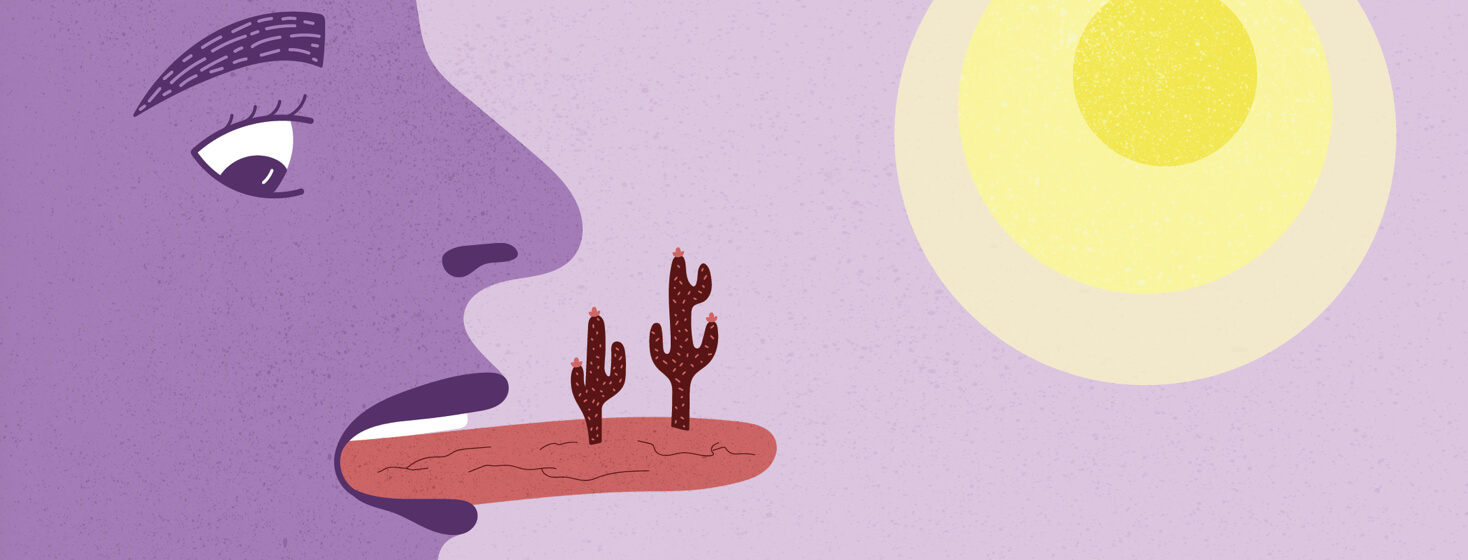Your Persistent Dry Mouth May Not Be CPAP Related
Positive airway pressure (PAP) therapy and masks are frequently the first go-to culprit in everyone’s mind for why they have such a dry mouth.
It’s a good place to start if you have sleep-disordered breathing. You will get advice on increasing your humidity, trying different mask styles, and proper mask fitting to decrease leaks. You will hear about mouth breathing and learning to breathe nasally to reduce that dry mouth.
All those things do work and will resolve the problem for just about everyone. Yet, you continue to suffer from severe dry mouth even after addressing all of that. So now what?
It may be time to see a doctor
By that, I mean either your general practitioner or even a dentist. Some medicines can have the side effect of causing severe dry mouth, and your doctor may need to change you to a different one that doesn’t have that side effect.1
Some people have issues where their salivary glands don’t produce enough saliva. They may need a prescription drug to help with that. Some oral fungi can cause your mouth to be overly dry. Again, your regular doctor or dentist may need to be involved.1
Not sure you want to go that route just yet? There are some easy home remedies you can also try.
Home remedies for dry mouth
Drink more water
Being dehydrated is the most common cause of dry mouth and daytime fatigue. Most people think they are drinking enough water, but they are not. We have all heard the part about drinking 8 cups a day. However, that may not be the right amount for you.
- How much water should I drink? According to the National Academies of Science Engineering and Medicine, a healthy person in a temperate climate who is not overly active needs much more than that. They recommend that men get 125 ounces daily (about 15.5 cups) and that women get in 91 ounces daily (about 11.5 cups) through their food and drink. There are a lot of sites that recommend you drink at least half your body weight in ounces of water. All that said, you don’t want to drink too much water as that can be an entirely different problem.2
- What about ice? Most of us are not that good at judging by eye how many ounces are in front of us. One issue is that Americans tend to use a lot of ice that takes up room in a glass, but we don’t drink the ice. Overestimating how much water is being consumed is common. It may be time to actually measure your water out for a bit until you get better at eye-balling the amount.
- Don’t like the taste of water? There are a lot of flavor enhancers out there that are not full of sugar, sodium, or caffeine to make water more desirable to drink.
Limit caffeine intake
(You knew that was coming). Caffeine is a diuretic and can dehydrate you more.1
Watch your sodium intake
Most soda pops are not just a source of caffeine. They are very high in sodium, which is drying.1
Stop smoking
Stop smoking or using any form of tobacco. They can also contribute to your mouth being dry.1
Reduce your stress
There are a lot of meditation apps out there, but honestly, just sitting outside in the fresh air for 10 minutes listening to and watching nature (trees moving, clouds, birds, animals at play) can make a difference in stress levels, and it’s free. Stress and intense anxiety can lead to less saliva and, therefore, a dry mouth.3
Avoid antihistamines
If you can, avoid antihistamines and decongestants as they can be drying.1
Avoid drinking alcohol
Avoid alcohol, especially 3 to 4 hours before bed. Alcohol is dehydrating, and it is well-known for causing sleep disruptions throughout the night (even if you felt drowsy at the beginning of the night).1
Don't assume your PAP therapy is the culprit
It’s easy to simply assume your chronic dry mouth is the fault of your sleep-disordered breathing and your PAP therapy. It is, after all, commonly the culprit. However, once you have done all you can do to address that and you are still having issues, it may be time to look deeper into what is causing your dry mouth.
After all, you need your PAP. If you have other issues that are also going on and they are not addressed, it can make it even harder to adjust to your therapy.
Tell us about your PAP story and share a comment below.

Join the conversation